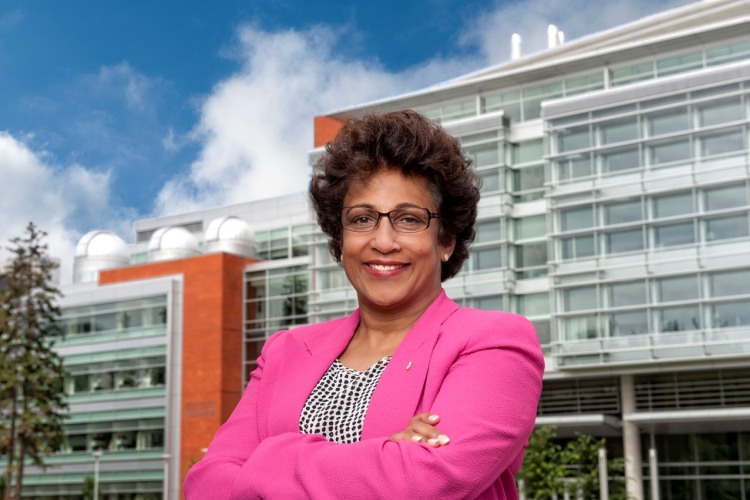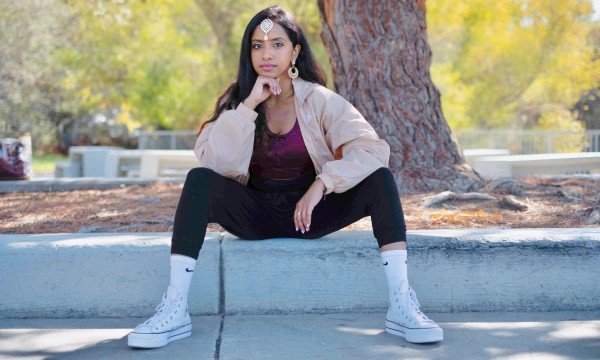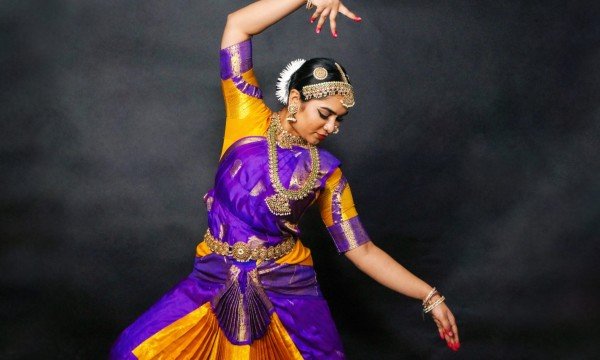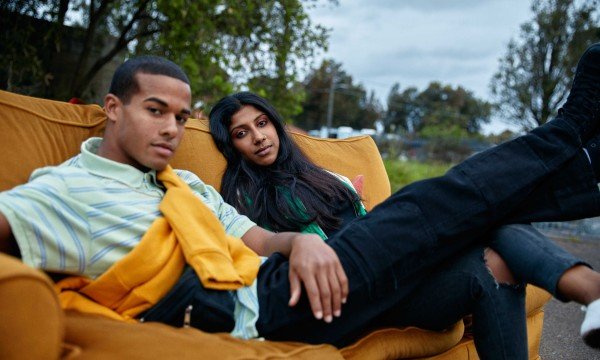
Indira Samarasekera is a Tamil Sri Lankan who was the president of the University of Alberta, and is currently on the board of directors for Magna International, TC Energy and Stelco. She has also served as a director of the Bank of Nova Scotia and is an Officer of the Order of Canada. She recently co-authored a book called "Nerve" which highlights what you and your co-author (Martha Piper) had in common was your gender, your willingness to take risks when leadership opportunities presented themselves, and a work ethic second to none. It was not always easy, pretty, or fair, but it was always the result of choosing to answer the call to lead. A call that in the authors’ view, too many women still turn away from.
Buy her book here - "Nerve: Lessons On Leadership From Two Women Who Went First"
___
***Are you or someone you know in the global Tamil community doing great things? We'd love to feature them: FILL OUT THIS FORM ***
Network & collaborate with Tamil Changemakers from around the world. Request to join our private LinkedIn community here.
___
Tell us about yourself including your family + upbringing, and how that helped shape your career path.
I was born in Colombo,Sri Lanka in 1952 to Tamil Christian parents, Dr. A.C. And Mrs Balasundari Arulpragasam. My Father was an ENT Surgeon, and practiced in Galle, Jaffna, Kandy and Colombo becoming the Chief ENT Surgeon at Colombo General Hospital. I have three siblings: a sister Dr. Ayesha Muthuveloe who now lives in the UK, Mr. Amal Arulpragasam who lives in Malaysia and a brother Mr. Rohan Arulpragasam who lives in Abbotsford, BC.
My family went to England in 1955, when I was 3-years-old, so my father could complete his specialist training. Britain had a profound influence on me, since I learned English, and attended school there. I have vivid memories of my time in the UK as a child enjoying the history and beauty of London, its culture and monuments. We returned to Sri Lanka and settled in Galle, but had to leave because of the 1958 race riots.
We moved to Jaffna and I attended Chundukuli briefly before going to Vembadi Girls School (which was next door to my home in Jaffna) and have very happy memories. I was immersed in Tamil culture and learned the language while appreciating all the Hindu festivals & fabulous Jaffna cuisine. My parents owned a coconut plantation in Pallai and I have wonderful recollections of holidays on the plantation.
My maternal grandmother, Lolita Paul, who married Dr. Gunaratnam Cooke, was daughter of the first Sri Lankan British trained surgeon, Dr. S.C. Paul and his wife Dora Paul (Aserappa). They had ten children and my grandmother being one of them. So I grew up in a large extended family in Colombo, who were successful professionals, and leaders in their fields. We were raised in a “village” of elders as my grandmother’s siblings all lived next to each other in Ward Place and Kynsey Road. The benefits of having such a strong family culture, support in good times and bad, shaped my views of the importance of family and community. My paternal grandparents, Dr. and Mrs Arulpragasam, were from Jaffna and spoke Tamil fluently. My father’s family, the Arulpragasam’s, also excelled in their chosen fields, so high achievement was expected from both sides of my family.
I moved to Colombo in 1964 and attended Ladies College, graduating in 1968. It was a marvelous school, with very high standards and I participated in debating, athletics and was a school prefect. I had wonderful teachers, and Mrs. Gnanalingham, my mathematics teacher encouraged my ambition to pursue an engineering degree as did my parents. I finished a four-year engineering degree at University of Ceylon (Peradeniya campus). After my engineering degree, I worked at the Ceylon Petroleum Corporation, got married to Harindra Samarasekera, and went to the University of California, Davis, on a Hayes Fulbright Scholarship to study for a Master’s degree in Engineering.
My career choice was shaped by having an outstanding education in science and mathematics in Jaffna and Colombo at outstanding schools, and having access to a first class engineering program in Sri Lanka (Ceylon at the time).
Tell us about the transition from Sri Lanka to Canada.
My transition from Sri Lanka to Canada, via the US was relatively easy. Being fluent in English, and raised a Christian, it was easy to fit in culturally. I went to graduate school to do a Ph.D at UBC soon after I arrived with my husband and we lived on the UBC campus which made my integration relative seamless. We made many friends of every nationality which helped us enjoy Canadian society. Having children has been a wonderful way to integrate into Canadian society as their best friends' parents have become my close friends.
Why did you decide to write "Nerve"? Why did you choose Martha Piper as your co-author? What end result are you hoping for by putting the content of “Nerve” out into the world?
Martha Piper and I are close friends having worked together from 2000-2004, while she was President of UBC and I was the Vice-President Research. After we both retired, she from UBC (1997-2006; 2015-2016) and I from being President of University of Alberta (2005-2015) we would meet often and exchange stories on our experiences as female leaders. We were being frequently asked for advice by women, on leadership, not only in academia but on non-profits and the corporate world since we had sat on large market cap company boards. We thought our experiences and the lessons learned may be of value to the next generation of women leaders so we decided to write the book. We think it takes Nerve for women to succeed as leaders and hence the title.
Choosing a career in academia takes some serious commitment, especially with respect to time spent in school. What made you choose this path?
I have a curious mind and also liked intellectual freedom. It appeared to me that an academic career, where one had the opportunity to think, make new discoveries, develop new ideas and teach the next generation would be most suited to my personality and interests. I never thought of it as a lengthy commitment, since I finished my Masters and Ph.D in 4.5 years. During that time I also had two children which was easier as a student. However an academic career involves serious commitment, if one aims to to become successful at research and teaching, obtain tenure and supervise graduate students. One spends long hours to achieve international excellence in one’s field. Publishing articles in peer reviewed journals, teaching undergraduates, supervising graduate students, consulting for industry, participating in professional activities all require a high level of dedication, but with it comes satisfaction and fulfillment.
How did you make that transition from research into more of a leadership role? It seemed like a lot of your role revolved around fundraising - how did you learn this skill?
Making the transition from research to a leadership role is not as difficult or as different as it may appear. In research, you have to come up with ideas to advance the field, find money to fund your research from external sources (universities do not provide researchers funding for their research) in a competitive landscape, recruit and oversee graduate students and technicians and deliver results. In a leadership role, you are also envisaging the future, gathering and building on the ideas of others, motivating people, finding resources and delivering on goals. As the president of a university, it's your job to help develop a vision for the institution that improves the experience for students, provide the support so faculty can do cutting edge research, get buy in from stakeholders, find resources from governments and private donors. In a sense its a larger landscape but it calls on your skills of influence and persuasion.
How do you see the future of education playing out, especially Post-COVID?
There are some deep trends that are reshaping the world post-Covid and education has to respond to these trends. They are the growth of disruptive technologies which include Artificial Intelligence and Robotics, climate change and a low-carbon economy, the rise of Asia (China in particular), a rising threat to democracies in the face of increasing authoritarianism, the need for greater diversity, inclusion and equity (in the work place) to name the major shifts. The Future of Work is changing, as a result of the internet where workers can work from anywhere, and are being valued for outcomes and not hours. Furthermore post-Covid has placed higher value on front-line workers whose work cannot be outsourced, whether its in health care, and delivery of essential services. Thus education, primary and post-secondary must shift both content and delivery to prepare citizens to find fulfilling work and make contributions to society in the light of rapid change. Some of the changes will include the appropriate use of technology in the class-room with some on-line teaching, utilizing face-to-face experiences to foster critical thinking and creativity, enhanced experiential learning, ensuring students are equipped with the skills that machines will not have, empathy, judgement, problem solving, greater imagination and ability to manage technology and information. Finally to be life-long learners.
How have your family and friends supported you through your journey? Did you have any doubters?
I have been very fortunate to have grown up in a supportive and loving family, and had the benefit of friends, mentors and sponsors along the way. My parents and extended family were truly extraordinary in nurturing me and my siblings to help us become caring, and conscientious adults with strong values. In the book “Nerve” co- authored by Martha Piper and myself, we detail how are early experiences in life, and in fact throughout our careers, key individuals have made an enormous difference to our journey as leaders.
What advice would you give 16-year Indira looking back?
In the book “Nerve”, co-authorized by Martha Piper and I, we have identified “Lessons Learned” after every chapter. These lessons comprise advice I wish I had been given at age 16! Overall I would have said to the 16-year old version of myself, “Dream more, Fear Less, and have the Nerve to take on challenges you could never have imagined”.
_____________________________
Related Articles:
- "The Tamil Creator Podcast (Ep.27): Bindi Bosses (Shyamla Eswaran & Ragavi Ragavan) - Australian-Based Dance Group Creating Social Movvement And Discussions Through Performance & Storytelling"
- "The Tamil Creator Podcast (Ep.26): Rick Selvarajah – UK-Based Professional MMA Fighter Turned Entrepreneur"
- "The Tamil Creator Podcast (Ep.25): Jenushika Jeyakumaran – Legal Innovator & Recent Grad Who Co-Founded Tech Company Aleri To Make Trial Preparation Easier For Lawyers"
- "The Tamil Creator Podcast (Ep.24): Nelson Sivalingam - UK-Based Serial Entrepreneur (Tech & Food), Podcast Host & Award-Winning Filmmaker"
- "The Tamil Creator Podcast (Ep.23): Maya Bastian - Investigative Video Journalist To Award-Winning Film Director (Including 2021 Cannes Festival Entrant)"
- "The Tamil Creator Podcast (Ep.22): Sathish Muneeswaran - Personal Trainer Changing The Conversation In The Tamil Community Around Strength Training, Fitness & Healthy Eating"
- "The Tamil Creator Podcast (Ep.21): Shayna Mehta – Aspiring Doctor & Award-Winning Div 1 Basketball Player Challenges The Notion That Brown Girls Can't Ball"
- "The Tamil Creator Podcast (Ep.20): Anand Venkateswaran – Crypto Believer Behind $69M NFT Purchase & Co-Manager of Metapurse, World's Largest NFT Fund"
- "The Tamil Creator (Ep.19): Priya Ragu – Swiss-Tamil Music Artist On A Meteoric Rise To Global Fame"
- "The Tamil Creator (Ep.18): Thusy Suntharam – Montreal Filmmaker Pursuing Big Screen Dreams While Working A 9-to-5"
- "The Tamil Creator (Ep.17): Kumutha Ramanathan – Award-Winning Journalist & Budding Entrepreneur"
- "These Tamil Entrepreneurs Share How They Grew Their Side Hustles"
_____________________________
What is a new belief, behaviour or habit that has most improved your life?
Rediscovery of my faith as a Christian. While I was born a Christian I did not practice Christianity until later in my adult life. A cousin advised me to read “Mere Christianity” by C.S. Lewis, a aetheist and Oxford professor who converted to Christianity later in life. I was blown away by his arguments for the existence of God and the purpose of the life, death and resurrection of Jesus Christ. Faith gives you a “peace that passeth all understanding” and inspires you to help others and make a difference with your time and resources. Through Faith, you live each day more joyfully.
What is a book you've recently read that's left an impact on you?
I really enjoyed reading the book “The Smallets Lights in the Universe” by Sara Seager, a Canadian and a professor in Astrophysics at MIT who won the MacArthur Genius Prize. Part memoir, part story of her scientific discoveries it is a superbly written and thought provoking book that helps us think about our place in the universe.
If you were given $1 billion, how would you allocate the money to change the world?
I would provide the money to educate girls everywhere. When girls are educated, their children benefit which then benefits the next generation.
Who is one person from the global Tamil community and one person that isn’t Tamil that you admire and why?
There are two. One is Indra Nooyi who was born in Tamil Nadu, was educated in India and came to the US and studied at Yale University. She became the CEO of PepsiCo, a Fortune 500 company which she led for over a decade transforming its products and competitiveness.
The other is Kamala Harris, whose mother was Tamil who is now Vice-President of the USA, the second most powerful politician in the world.
In terms of non-Tamil people I admire there are so many that it would be difficult to single anyone out.
What do you do outside of work for fun?
I spend a lot of time with my grandchildren and children. I also like entertaining friends by cooking Sri Lankan food.
What is an insecurity you have?
I still struggle with feeling inadequate when I am challenged with tasks outside my comfort zone, such as being on the boards of large companies. This is an enormous responsibility, where one is grappling with complex issues and I am constantly striving to do better
What is your favourite Tamil food (meal or dessert)?
I love Thosai and Appam. With the right curries and accompaniments they are “soul food”.
In terms of your personal legacy, in a few sentences, describe how you want to be remembered by your family and friends?
I hope I will be remembered as someone who was generous, inspired and helped others to excel and live their best lives, brought joy to my family and friends.
*Looking to create your love story? Join the other couples who have dated and got married through myTamilDate.com!***
"myTamilDate Love Story: Jenani & Nav Found Each Other At The Right Time And Right Place In Life"
"myTamilDate.com Love Story: Tharshi & Ravi Found Love During Lockdown"
"How France Met Canada: A MyTamilDate.com Love Story"
***CLICK HERE to listen to us on Spotify!***
Related Articles:
- "Toronto's OG Food Writer Suresh Doss Is Using His Reach And Voice To Help Engineer A Comeback For Beleaguered Restaurant Industry"
- "Elite Athlete, Coach, Future Chiropractor & Entrepreneur Abirami Shanmugaratnam Is Making Waves In The Athletic Performance Industry"
- "Ballet And Kung Fu Trained Australian Actress & Writer Rubi Balasingam Is Promoting Tamil Voices In Aussie TV And Film"
- "Serial Entrepreneur Andrews Moses Created Tenantcube To Help Landlords Find Great Tenants And Create Amazing Renting Experiences"
- "Yathusha Kulenthiran's Marketplace For Environmentally Sustainable Palmyra Products Empowers Female Artisans In Sri Lanka"
- "Australian-Tamil Entrepreneur Sujan Selven Is Creating Economic Opportunities For Remote Villages In Northeast Sri Lanka Using Upcycled Devices & Improved Connectivity"
- "Crypto Tinhorn & Former Journalist Anand Venkateswaran Talks About Buying A $69M Digital Art Piece, Collecting Stories & Catalyzing Change"
- "Tamil Innovators Spotlight: Abarna Raj, CEO of Australian Social Startup Palmera, Is Tackling World Poverty"
- "Tamil Innovators Spotlight: Tea Drops CEO & Founder, Sashee Chandran"
- "Tamil Innovators Spotlight: Knowledgehook's CEO, Travis Ratnam"
- "Tamil Innovators Spotlight: Kabo CEO & Founder, Vino Jeyapalan"
- "Danny Sriskandarajah's Journey From Rural Sri Lanka to CEO of Oxfam Great Britain"
- "The NBA Bubble: Dr. Priya Sampathkumar Helped Make It Happen"
- "These Tamil Founders Behind Agritech Startup Dunya Habitats Want To Alleviate Food Security Globally"
- "Marketing Maven Jackson Jeyanayagam Shares Insights From His Illustrious 20-Year Career"
- "Angel Investor Jay Vasantharajah On Building His Portfolio One Day At A Time"
- "Breaking Into Hollywood: Meet Tamil-Canadian Actor Vas Saranga"
- "Meet Rebecca Dharmapalan - Filmmaker, Legal Scholar, And Activist"

























